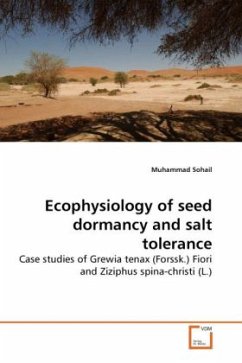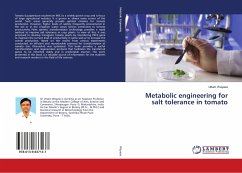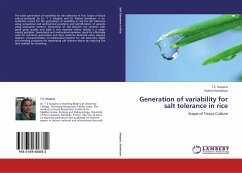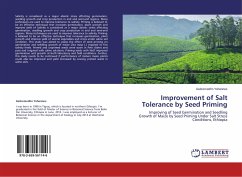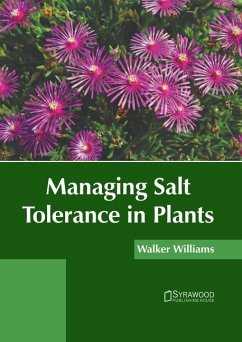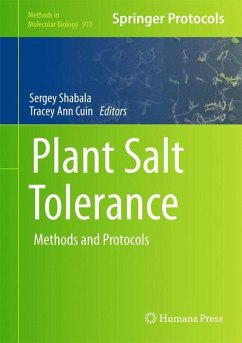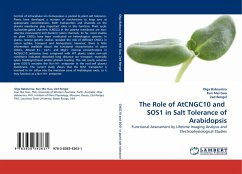
Strategy of salt tolerance in cereal
Growth enhancement in two wheat cultivars, by exogenous application of glycinebetaine under salt stress
Versandkostenfrei!
Versandfertig in 6-10 Tagen
45,99 €
inkl. MwSt.

PAYBACK Punkte
23 °P sammeln!
Undoubtedly, plant breeders have made considerable achievement in the past few years in improving salinity tolerance in some potential crops using artificial selection and conventional breeding approaches as well as molecular biology approaches, but to a substantial improvement in salinity tolerance in crops is still an important challenge to agricultural scientists. Of the various plant responses to salt stress, the phenomenon of accumulation of organic compounds of low molecular weight collectively known as compatible solutes, has been much focused by the plant scientists in the last decade....
Undoubtedly, plant breeders have made considerable achievement in the past few years in improving salinity tolerance in some potential crops using artificial selection and conventional breeding approaches as well as molecular biology approaches, but to a substantial improvement in salinity tolerance in crops is still an important challenge to agricultural scientists. Of the various plant responses to salt stress, the phenomenon of accumulation of organic compounds of low molecular weight collectively known as compatible solutes, has been much focused by the plant scientists in the last decade. This phenomenon helps the plant to become acclimated to stressful environment. Furthermore, exogenous application of compatible solutes such as glycinebetaine (GB) to plants growing under saline conditions is a novel approach to ameliorate salt induced reduction in growth and yield. . In view of considerable importance of spring wheat as a major staple food crop of many countries and its sensitivity to salt stress, it was selected for the discussion.




